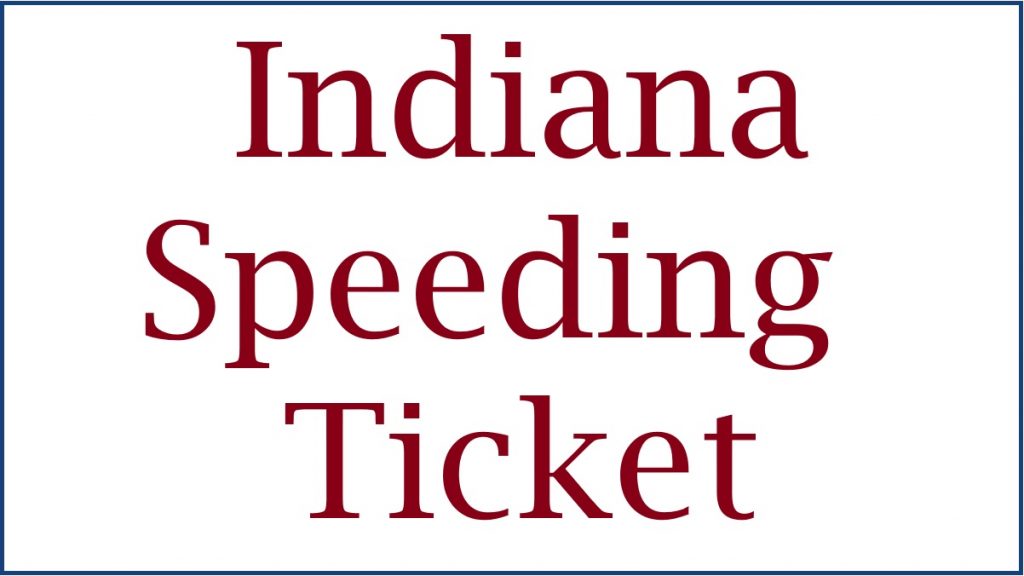Guide to traffic ticket and violation in Indiana: Indiana Speeding Ticket: Respond to Indiana Traffic Ticket. Indiana Traffic Tickets & Violations. How to Fight a Traffic Ticket in Indiana. Types of Indiana Traffic Violations
Indiana Speeding Ticket
Indiana State uses a demerit point system to range the drivers driving records. The violation committed will determine the points and the fines or penalties. Traffic violations in Indiana vary by court and county. The offences are charged differently; thus, all drivers should know about the traffic violations laws. Traffic officer offers traffic tickets once you offend any of the State laws. The driver should take action to avoid extra penalties after the due date. The ticket contains information about the court, fine and time to pay. However, not all violations are taken to court; some don’t appear if the driver decides to pay the fine.
The state has two classes of violations: moving and non-moving violations.
Moving Violations
The state considers moving violation as offences which happens when the vehicle is in motion. The moving violations are serious crimes which may lead to license suspension, a jail sentence or hefty fines. Examples of moving offences are speeding, drunk driving (DUI), not stopping at a stop sign or red light, not stopping for a school bus when alighting school children or picking.
Non-Moving Violations
A non-moving violation is related to parking or faulty equipment. The breach happens still when the vehicle is moving. The infringements in non-moving violations are classified here not by what will happen but by law. Moving violations and non-moving violations are treated differently by the court and DOL department of licensing. The moving violations are reported to the DOL while non-moving violations are not, the laws prohibit other non-moving violations from being handed by the DOL or insurance companies.

How to Respond to Indiana Traffic Ticket
How to Fight a Traffic Ticket in Indiana
- Paying the Traffic Ticket Fine
Drivers paying for the ticket admit they are guilty of the offence. Some prefer paying and forgetting the court hassles. However, the traffic department will add the demerit points on the driving record or suspend the license. These happen for severe matters like DUI, speeding, reckless driving etc. There are several ways to complete transactions. You can pay using the online state website, by mail or pay in person. The website will guide you in the payment method. Ensure to pay before the due date.
- Request a Mitigation Hearing
These go for drivers admitting they are guilty of the violation. They can request mitigation which will help in reducing the fine. The driver can plead their case and request for a monthly payment plan or community service.
- Pleading Guilty/contest Hearing
Violators have the right to plead not guilty and request for contest hearing. The ticket will guide you on the county and court to send the mail. The court will give notice on when to appear for the hearing. The hearing can result in a fine reduction, traffic school, and supervision or case dismissal.
Speeding Tickets and Penalties in Indiana
The state has two types of speeding laws:
- Basic speeding law
- Absolute limits
Basic speeding law
The basic law is set to prohibit the driver from going beyond the reasonable speed. The driver has the authority to limit his/her speed according to the current situation or environment. The motorist is expected to drive at a safe speed. Example, a speed of 55mph is safe on bright sunny days to buy dangerous on icy roads or poor visibility and other circumstances.
Absolutes Speed Limits
The absolute speed limit is the already set speed limit by the state. If the driver goes past the set absolute speed limit that is considered as a traffic violation. Examples of some Indiana absolute speed limits are:
- 15mph in alleys
- For urban districts, a speed of 30mph is allowed.
- Residential districts drive at a speed of 25mph.
- 60mph on most of the state highways which have four or more lanes.
- 65mph for highways which are governed by the finance authority and 0mph for the interstate highways.
Types of Indiana Traffic Violations
There are many offences which are considered as traffic violations in Indiana. Some are petty, while others are a misdemeanour.
- Reckless driving
- DUI or driving under the influence of drugs and alcohol.
- Over speeding
- Inattentive driving
- Using your mobile phone while driving
- Driving without your seat belt,
- Using a suspended driving license.
- Driving without the driving license.
- Wrong parking.
- If any equipment is damaged and needs correction.
- Racing on highways
- Leaving the scene of the accident.
- Not having enough insurance.
These are just a few of the violations in Indiana State. Drivers are advised to read the traffic laws to avoid tickets and fines. It also keeps the roads safe, note in case you receive a ticket you should react within the given days to avoid penalties.
indiana road conditions visit this link